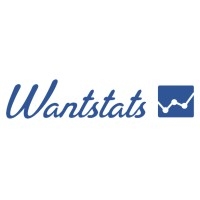Canada Digital Business Card Market: Transforming Professional Networking in the Digital EraCanada Digital Business Card Market

The Canada digital business card market has seen a significant surge in adoption over recent years, largely driven by the need for more efficient, sustainable, and contactless networking solutions. Traditional paper business cards are rapidly being replaced by digital alternatives, as Canadian professionals, entrepreneurs, and corporations seek smarter and environmentally friendly ways to share contact information. Digital business cards—accessible via apps, QR codes, or NFC-enabled devices—offer a streamlined experience that aligns with the country's increasing focus on digitization and sustainability. As remote work, hybrid events, and virtual conferences become mainstream, digital business cards offer a flexible and modern solution for personal branding and networking.
Canada's robust technological infrastructure and digitally literate population provide a strong foundation for the growth of the digital business card market. Businesses are rapidly adopting digital transformation strategies, and part of this shift includes digitizing traditional office practices, such as business card exchanges. Canadian startups and technology firms are leveraging this opportunity to develop innovative digital card platforms offering features like real-time updates, analytics, CRM integration, and customizable templates. Additionally, the convenience of updating contact details instantly without printing new cards presents a cost-effective and time-saving advantage, making digital cards an appealing option across industries.
The market has witnessed increased demand from sectors such as IT, real estate, education, healthcare, and finance. Each of these industries values efficient client communication and brand identity, both of which are effectively supported by digital business card solutions. For example, real estate agents and consultants can instantly share portfolios and property links, while educators and healthcare professionals can embed appointments or online forms within their digital cards. Moreover, government institutions and corporate enterprises are exploring enterprise-grade solutions to facilitate secure and uniform contact sharing among their employees.
Environmental sustainability is another crucial factor propelling the digital business card trend in Canada. With growing awareness of climate change and corporate responsibility, businesses are under pressure to reduce their carbon footprint. The shift from paper to digital significantly reduces paper consumption, waste, and associated printing costs. Additionally, the zero-contact nature of digital cards aligns well with public health measures, especially in the wake of COVID-19. As such, the digital business card serves both as a progressive branding tool and a contribution to a greener, safer workplace environment.
Innovations in technology are also reshaping how digital business cards are used and managed. The integration of NFC (Near Field Communication) technology allows users to share their cards by simply tapping a smartphone. QR code sharing and virtual wallet compatibility have made it even easier to store and retrieve contact information on the go. Platforms also allow the inclusion of multimedia content such as videos, portfolio links, and social media profiles, turning a simple contact exchange into a dynamic personal marketing tool. These capabilities are particularly attractive to professionals looking to differentiate themselves in a competitive market.
In terms of market competition, several Canadian startups and global players are vying for a share of this growing industry. Companies such as HiHello, Linq, Haystack, and Mobilo are investing in localized features to cater specifically to the Canadian audience. These include bilingual (English and French) interfaces, local customer support, and compliance with Canadian data privacy regulations. The presence of global players has also encouraged domestic companies to innovate more rapidly and offer competitive pricing models, ranging from freemium plans to customized enterprise packages.
The Canada digital business card market also benefits from supportive regulatory and policy environments. Canada’s emphasis on digital innovation and entrepreneurship has resulted in various funding opportunities and incentives for tech startups, thereby accelerating the development and adoption of new networking technologies. Additionally, increasing focus on data privacy and secure communication has encouraged digital card providers to implement robust encryption and user control features. This ensures that users feel confident in using these tools for sharing professional information safely and efficiently.
However, the market is not without challenges. One of the key hurdles is the lack of awareness among older professionals or businesses that are less digitally inclined. Despite the widespread availability of digital card solutions, some users still prefer traditional paper cards due to habit or perceived simplicity. Bridging this gap requires educational efforts, user-friendly interfaces, and clear demonstrations of the long-term benefits. Moreover, ensuring compatibility across different devices and operating systems remains essential to deliver a seamless experience.
Looking ahead, the future of the digital business card market in Canada appears promising. The increasing penetration of smartphones, wider availability of high-speed internet, and growing acceptance of digital solutions in business environments are likely to continue driving adoption. There is also scope for the development of AI-powered features such as smart contact management, automatic syncing with email and CRM tools, and engagement analytics. These additions could enhance the value proposition of digital cards further, making them indispensable tools in professional networking.
Source - https://www.wantstats.com/charts/canada-digital-business-card-market-by-pricing-179183
The Canada digital business card market is rapidly evolving, driven by technological innovation, environmental awareness, and the ongoing shift toward digital business practices. With a tech-savvy population and supportive business ecosystem, Canada is well-positioned to lead in the adoption of digital networking tools. While challenges remain, the benefits—ranging from cost savings and sustainability to enhanced connectivity—are poised to outweigh the barriers. As digital interactions become the norm, digital business cards are no longer a novelty but a necessity in the modern Canadian professional landscape.
- Art
- Causes
- Crafts
- Dance
- Drinks
- Film
- Fitness
- Food
- الألعاب
- Gardening
- Health
- الرئيسية
- Literature
- Music
- Networking
- أخرى
- Party
- Religion
- Shopping
- Sports
- Theater
- Wellness

